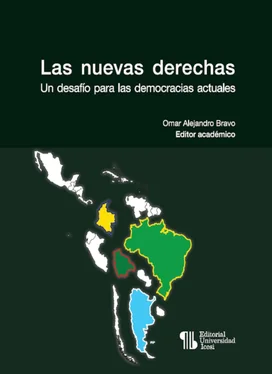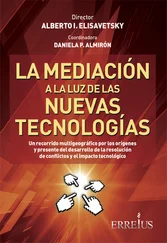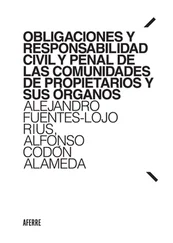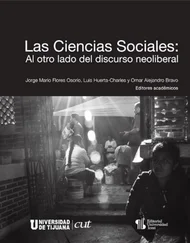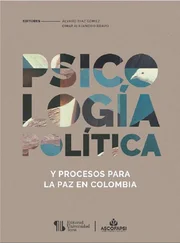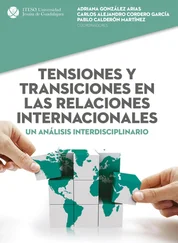Lo anterior no quiere decir que ser de “derecha” o “izquierda” no signifique nada en Brasil o Colombia, solo que la ideas que se asocian a estas etiquetas ideológicas pueden variar significativamente dependiendo del contexto y pueden no representar ideas abstractas (como comúnmente se entiende la ideología). En el caso de Brasil, por ejemplo, pareciera que el ser de “derecha” o “izquierda” adquiere el carácter de una emergente identidad política que refleja más la afinidad o apego con un grupo social (o el rechazo a un grupo) y menos la alineación con un conjunto de ideas. En este sentido, la relevancia del uribismo en Colombia o el apoyo del que goza Bolsonaro en una parcela del electorado no necesariamente es solo por afinidad programática. Puede reflejar también la simpatía de algunas personas de pertenecer a un grupo. Se requiere entonces entender mejor las bases psicológicas y no solo programáticas del apego a estas fuerzas políticas.
Las ideas y la evidencia presentadas en este capítulo son apenas un inicio para entender a la “izquierda” o la “derecha” en las bases, es decir en la opinión pública. A medida que se van desarrollando los gobiernos de derecha que ahora llegan al poder en América Latina, no solo es importante explorar de qué manera estos reflejan cambios, no necesariamente ideológicos, en la opinión pública, sino también cómo estos gobiernos van a influir la construcción de identidades y posiciones políticas en esta.
Referencias bibliográficas
ALBARRACÍN, Juan (2013). Ideological self-placement and issue attitudes in Colombian public opinion. Paper presentado en el 7° Congreso Latinoamericano de Ciencia Política, Bogotá.
ALBARRACÍN, Juan, GAMBOA, Laura y MAINWARING, Scott (2018). “Deinstitutionalization without Collapse: Colombia’s Party System.” En Scott Mainwaring (Ed.) Party Systems in Latin America. Institutionalization, Decay, and Collapse . New York: Cambridge University Press, pp. 227–254.
CARMINES, Edward, ENSLEY, Michael, y WAGNER, Michael (2012). Political ideology in American politics: One, two, or none? The Forum , 10: 1–18.
CONOVER, Pamela y FELDMAN, Stanley (1981). “The Origins and Meaning of Liberal/ Conservative Self-Identifications. American Journal of Political Science , 25 (4): 617-645.
CONVERSE, Philip (1964). “The Nature of Belief Systems in Mass Publics.” In Ideology and Discontent , ed. David Apter. New York: Free Press, pp. 206-261.
CRAMER, Katherine (2016). The Politics of Resentment: Rural Consciousness in Wisconsin and the Rise of Scott Walker . Chicago: University of Chicago Press.
DOWNS, Anthony (1957). An Economic Theory of Democracy. New York: Harper.
FEDERICO, Christopher (2012). “Ideology and Public Opinion.” In New Directions in Public Opinion, ed. Adam Berinsky. New York: Routledge, pp. 79-100.
FEDERICO, Christopher y MALKA, Ariel (2018). The Contingent, Contextual Nature of the Relationship Between Needs for Security and Certainty and Political Preferences: Evidence and Implications. Advances in Political Psychology , 39: 3–48.
FELDMAN, Stanley (1988). “Structure and Consistency in Public Opinion: The Role of Core Beliefs and Values.” American Journal of Political Science 32 (2): 416-440.
JACOBY, William G. (1991). “Ideological Identification and Issue Attitudes”. American Journal of Political Science 35 (1): 178-205.
LAPOP 2012. The Americas Barometer by the Latin American Public Opinion Project (Brazil and Colombia Surveys), www.LapopSurveys.org.
LAPOP (2016). The Americas Barometer by the Latin American Public Opinion Project (Brazil and Colombia Surveys), www.LapopSurveys.org.
GAMBOA, Laura (2017). “Opposition at the Margins: Strategies against the Erosion of Democracy in Colombia and Venezuela.” Comparative Politics , 49(4): 457-477.
GREEN, Donald, BRADLEY, Palmquits, y SCHICKLER. Eric (2002). Partisan Hearts and Minds: Political Parties and the Social Identities ofVoters . New Haven, CT: Yale University Press.
HANDLIN, Samuel y COLLIER, Ruth (2011). “The Diversity of Left Party Linkages and Competitive Advantages” En Levistky, Steven y Kenneth M. Roberts (eds.) The Resurgence of the Latin American Left . Baltimore: Johns Hopkins University Press, pp. 139-161.
HUNTER, Wendy y TIMOTHY J. Power (2019). “Bolsonaro and Brazil’s Illiberal Backlash.” Journal of Democracy , 30 (1): 68-82.
KNIGHT, Kathleen (2006). “Transformations of the Concept of Ideology in the Twentieth Century”. American Political Science Review , 100 (4): 619-626.
LAYMAN, Geoffrey y CARSEY, Thomas (2002). “Party Polarization and “Conflict Extension” in the American Electorate”. American Journal of Political Science 46 (4): 786-802.
LEVISTKY, Steven y ROBERTS, Kenneth (2011). Latin America’s “Left Turn”. A Framework for Analysis. En Levistky, Steven y Kenneth M. Roberts (eds.) The Resurgence of the Latin American Left . Baltimore: Johns Hopkins University Press, pp. 1–28.
LEWIS-BECK, Michael, JACOBY, William, NORPOTH, Helmuth y WEISBERG, Herberth (2008). The American Voter Revisited . Ann Arbor, MI: University of Michigan Press.
MAINWARING, Scott POWER, Timothy y BIZARRO, Fernando (2018). “The Uneven Institutionalization of a Party System: Brazil.” En Scott Mainwaring (Ed.) Party Systems in Latin America. Institutionalization, Decay, and Collapse . New York: Cambridge University Press, pp. 164–200.
MILANESE, Juan y SERRANO, Camilo (2019). “Consistencia espacio-temporal de los apoyos electorales. Un análisis ecológico de la transferencia de votos en las dieciséis fallidas circunscripciones de paz en Colombia.” Paper presentado en el X Congreso Latinoamericano de Ciencia Política (ALACIP), Monterrey, México.
NIE, Norman, VERBA, Sidney y PETROCIK, John (1979). The Changing American Voter. Cambridge: Harvard University Press.
OLIVELLA, Santiago y RODRÍGUEZ RAGA, Juan Carlos (2009). “Lo espacial es especial: La decisión de voto por proximidad en Colombia.” En ¿Juntos pero no revueltos? Partidos, candidatos y campañas en las elecciones legislativas de 2006 en Colombia, ed. Felipe Botero. Bogotá: Universidad de los Andes, pp. 107-124.
POWER, Timothy y RODRIGUES-SILVEIRA, Rodrigo (2019). “The Political Right and Party Politics.” En Barry Ames (ed.) Routledge Handbook of Brazilian politics . New York: Routledge, pp. 251–268.
POWER, Timothy y ZUCCO, César (2009). “Estimating ideology of Brazilian Legislative parties, 1990-2005: a research communication. Latin American Research Review , 44 (1): 218-246.
ROBERTS, Kenneth (2014). “Democracy, Free Markets, and the Rightist Dilemma in Latin America. En Luna, j. y Rovira Kaltwasser, C. (eds), The Resilience of the Latin American Right . Baltimore: Johns Hopkins University Press, pp. 26-47.
RODRÍGUEZ RAGA, Juan Carlos (2007). “Izquierdas y derechas en Colombia. Una mirada rápida a los razgos sociodemográficos del espectro ideológico del país.” Colombia Internacional , 66 (July-December):184-193.
ROSS ARNOLD, Jason y SAMUELS, David (2011). Evidence from Public Opinion. En Levistky, Steven y Kenneth M. Roberts (eds.) The Resurgence of the Latin American Left . Baltimore: Johns Hopkins University Press, pp. 31–51.
SAMUELS, David y ZUCCO, César (2018). Partisans, Antipartisans, and Nonpartisans. Voting Behavior in Brazil . New York: Cambridge University Press.
SANTOS, Fabiano (2008). Brazilian democracy and the power of “old” theories of party competition. Brazilian Political Science Review , 2(1), 57–76.
Читать дальше
